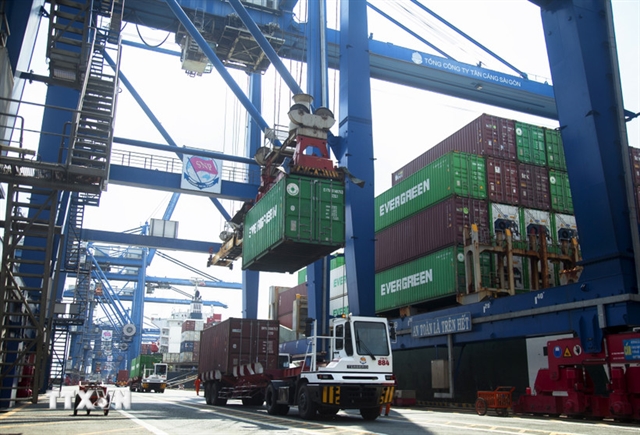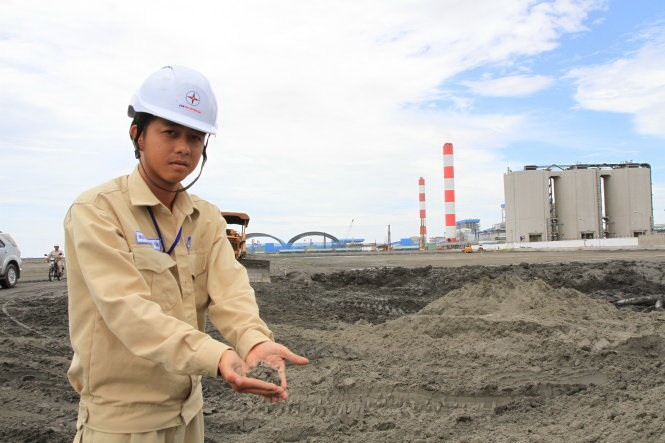

" />Using coal bottom ash from thermo-power plants to produce construction materials would help reduce the volume of coal slag discharged into the environment in the Mekong Delta, heard at the seminar held by the Ministries of Construction and Industry and Trade in Cần Thơ on Tuesday (3 October 2017).
 |
| A yard to store slag at the Duyên Hải Thermal Plant in the Mekong province of Trà Vinh. — VNS File Photo. |
HCM CITY — Using coal bottom ash from thermal power plants to produce construction materials will help reduce the slag discharged into the environment in the Mekong Delta, experts said.
According to the Electricity of Việt Nam (EVN), by 2030 when nine plants are operational in the delta, the slag output could rise to 13.67 million tonnes per year.
Vast areas would be required to store them if no solution is found to dispose of these huge heaps, experts told a seminar titled “Using coal slag from thermal power plants to produce construction materials in the Mekong Delta,” held by the ministries of Construction and Industry and Trade in Cần Thơ on Tuesday
Deputy Minister of Construction Bùi Phạm Khánh said the slag poses a threat to the environment and socio-economic development.
It is an urgent task for relevant authorities to find measures to dispose of these huge volumes of coal slag, he said.
He said the delta uses some of the slag to produce construction materials and for filling in road construction.
There are five power plants in the region, Kiên Lương (in Kiên Giang Province), Long An and Duyên Hải (Trà Vinh Province), Sông Hậu (Hậu Giang Province), and Sóc Trăng, which produce huge volumes of slag.
Trương Quang Hoài Nam, deputy chairman of the Cần Thơ city People’s Committee, said people living along the Hậu River are deeply concerned.
“They are worried about the impacts of the coal slag on the environment and wonder about the solutions to these problems since the Mekong Delta will have nine thermal power plants.”
Phạm Văn Bắc, head of the construction ministry’s construction materials department, said there are 21 operational coal-fuelled power plants in the country that would discharge 61 million tones of coal slag next year.
According to figures from the Ministry of Industry and Trade’s industrial safety and environmental engineering department, the 21 plants require some 700ha of land to store slag.
The volume of slag is expected to rise to 109 million tonnes in 2020 and 422 million tonnes in 2030, Bắc added.
Most of the slag produced in the north is used to produce non-fired bricks, and this has begun of late in the southern and central regions too.
Châu Văn Thành, deputy director of Trường Sơn Co. Ltd., which has an agreement to buy coal slag from the Duyên Hải Thermal power Plant in the Mekong province of Trà Vinh, said his firm began to buy one million tonnes a year in 2015, half the plant’s output.
The remaining one million tonnes are buried, he said.
Deputy Minister of Industry and Trade Hoàng Quốc Vượng said since the production of electricity from hydro-power, gas, wind and solar plants is limited, the country would give priority to coal-fired plants.
His ministry has instructed investors in thermal power plants to make plans to dispose of coal slag and submit them by December 31.
Deputy Minister of Construction Bùi Phạm Khánh said the five power plants in the delta and relevant authorities must enhance efforts to dispose of the slag produced by the plants.
He also called on provincial authorities to create favourable conditions for their efforts. — VNS